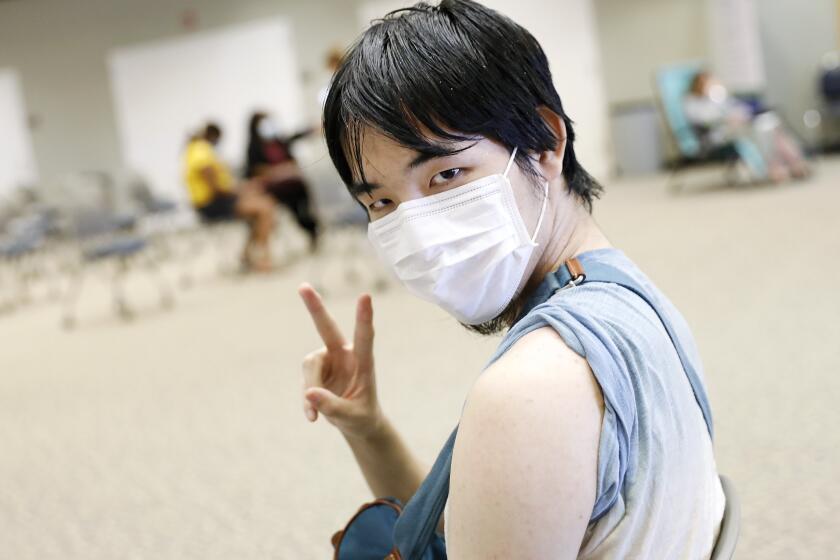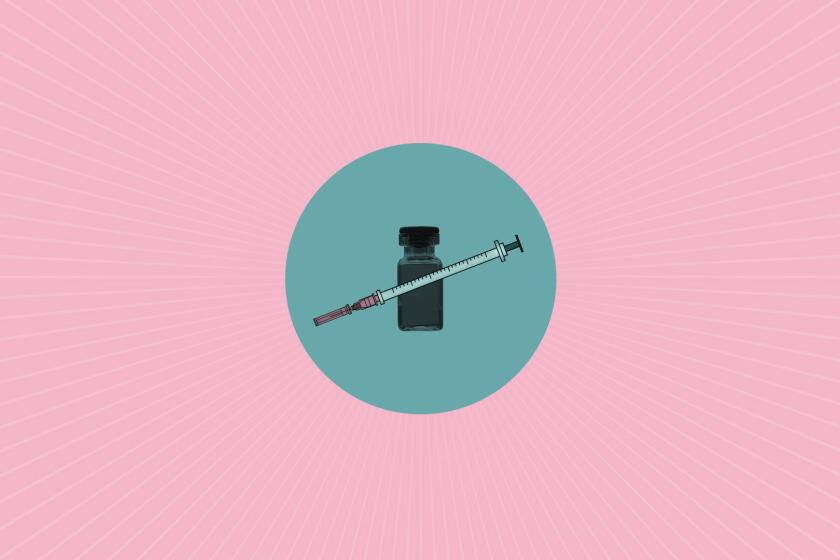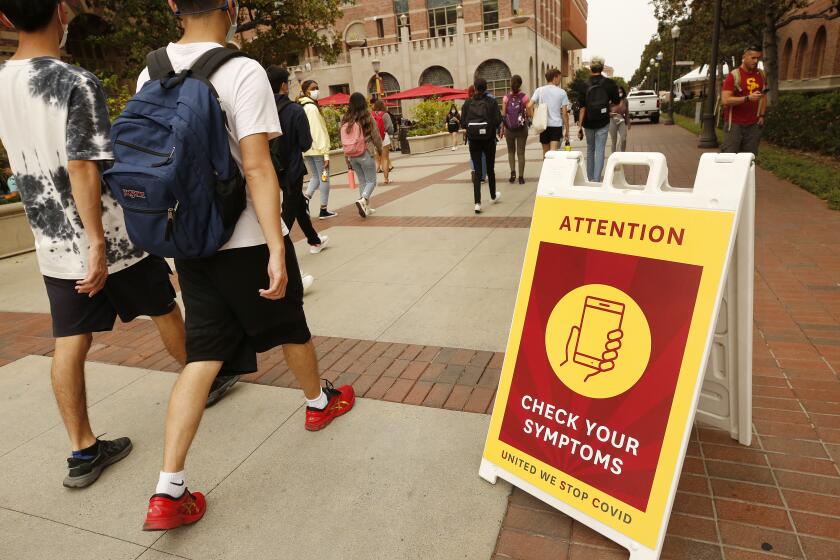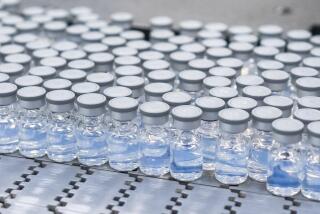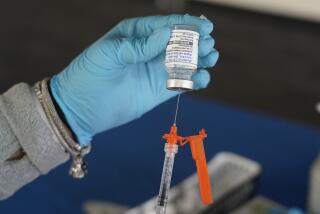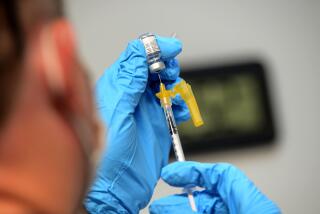Johnson & Johnson says COVID-19 booster shot triggered an antibody surge
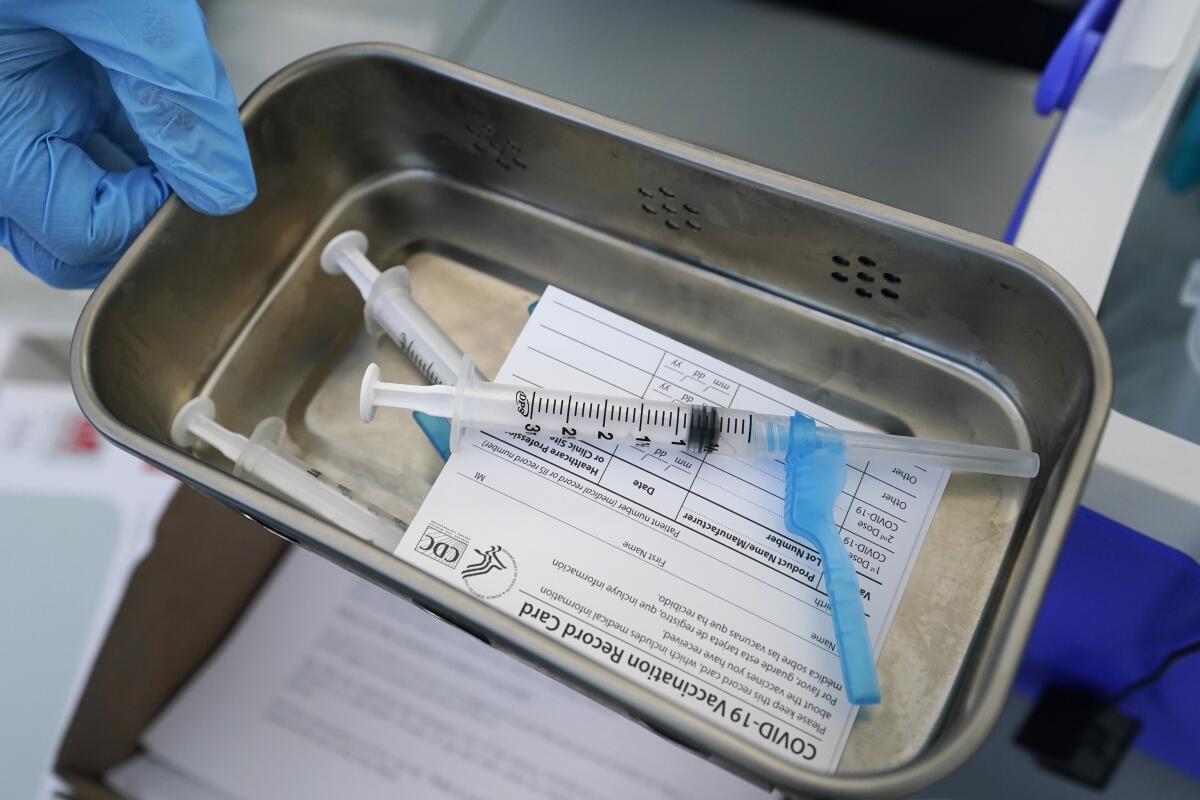
- Share via
Johnson & Johnson said a booster of its COVID-19 vaccine provided a rapid and strong increase in antibodies, supporting use of a second shot among people who previously received its single-dose immunization.
A second dose of the J&J vaccine led to a ninefold increase in COVID-19-fighting antibodies compared with the levels participants had 28 days after getting their first shot, the healthcare giant said Wednesday, citing interim data from an early-stage trial.
Trial participants were given the booster six months after the first shot, according to Johnson & Johnson. Significant increases in antibody responses were seen in subjects ages 18 to 55 years old, and among those 65 or older who were given a lower dose of the booster.
The data will be posted on MedRXiv, a website for sharing preliminary research.
The latest findings, coupled with data showing the single shot’s durability through at least eight months, underscore a future booster strategy, said Mathai Mammen, global head of research and development for Johnson & Johnson’s pharmaceutical subsidiary Janssen.
“We look forward to discussing with public health officials a potential strategy for our Johnson & Johnson Covid-19 vaccine, boosting eight months or longer after the primary single-dose vaccination,” Mammen said in a statement.
The company’s shares were little changed at $175.24 as of 9:37 a.m. in New York.
Forthcoming boosters
Health experts around the world are engaged in a debate about when COVID-19 vaccine booster shots will be needed, and who should get them first. Many countries have yet to immunize even one-tenth of their population, and the World Health Organization has called on governments to delay boosters until more are protected globally.
Meanwhile, the U.S. announced this month it will aim to start offering boosters to certain recipients of the Pfizer and Moderna vaccines starting the week of Sept. 20. Due to concerns about waning protection, fully vaccinated adults will become eligible for the third dose eight months after completing their regimen.
How is FDA full approval different from emergency use authorization? And how will it change employer or government vaccine mandates?
The Biden administration anticipates 100 million boosters of those so-called messenger RNA vaccines would be given out by the end of 2021.
That’s left recipients of Johnson & Johnson’s single-shot vaccine, which employs a different technology, wondering about their own protection against the virus. More than 14 million U.S. residents have received the Johnson & Johnson shot, according to the Centers for Disease Control and Prevention.
Public-health and medical experts from the Department of Health and Human Services said Aug. 18 that they anticipated Johnson & Johnson booster shots would likely be needed.
The U.S. is planning booster doses of the Pfizer and Moderna COVID-19 vaccines, but if you got the one-dose Johnson & Johnson shot instead, stay tuned.
“Administration of the J&J vaccine did not begin in the U.S. until March 2021, and we expect more data on J&J in the next few weeks,” Health and Human Services officials said in a statement. “With those data in hand, we will keep the public informed with a timely plan for J&J booster shots as well.”
The New Brunswick, N.J.-based company has assured that its vaccine provides durable protection. Johnson & Johnson said in July that recipients of its vaccine produced strong neutralizing antibodies over the course of at least eight months against all variants, including Delta.
At the time, Johan Van Hoof, Johnson & Johnson’s global head of infectious diseases and vaccines, said a booster likely wouldn’t be needed until a year after the first dose, but that the company would follow the data. Johnson & Johnson is also awaiting results from a late-stage study of a two-dose regimen given two months apart.
A new CDC study finds more than 71% of COVID-19 infections in Los Angeles County between May 1 and July 25 were among the unvaccinated.
The company said it’s engaging the U.S. Food and Drug Administration and the CDC, the European Medicines Agency, the WHO and other authorities regarding boosting.
Given that the Johnson & Johnson vaccine was authorized in late February, boosters won’t likely be given until the end of the year.
